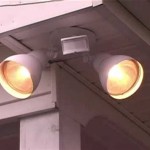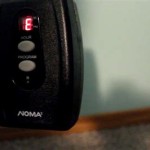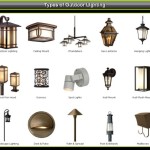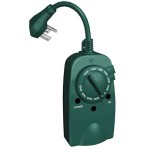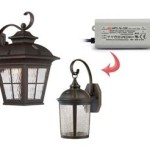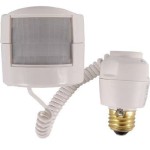Outdoor Lighting Motion Detection: Essential Aspects and Considerations
Motion detection has become an integral part of outdoor lighting systems, providing enhanced security, convenience, and energy efficiency. By understanding the key aspects of outdoor lighting motion detection, homeowners can make informed decisions about the best type of system for their needs.
Types of Motion Detectors
There are two primary types of motion detectors used in outdoor lighting: passive infrared (PIR) and microwave.
Passive Infrared (PIR): PIR sensors detect changes in infrared radiation emitted by moving objects. They are relatively inexpensive and easy to install but may be prone to false triggers caused by environmental factors.
Microwave: Microwave sensors emit high-frequency electromagnetic waves, which bounce off objects and return to the sensor. They are more expensive than PIR sensors but provide a larger detection range and are less likely to trigger on false positives.
Sensitivity and Range
The sensitivity of a motion detector determines how small of a movement it can detect. High sensitivity is desirable for capturing subtle movements, but it can also lead to false triggers. The detection range refers to the distance at which the sensor can detect motion effectively.
Adjustable Settings
Many motion detectors offer adjustable settings to customize their behavior. These settings include:
- Detection Time: The duration for which the light remains on after motion is detected.
- Trigger Distance: The distance from the sensor at which motion is detected.
Mounting Location and Orientation
The optimal placement of a motion detector depends on the specific application and the type of detector used. In general, PIR sensors should be mounted at a height of 6-8 feet, facing away from direct sunlight and weather elements. Microwave sensors can be mounted at a higher elevation due to their wide detection range.
False Trigger Prevention
False triggers are a common problem with outdoor motion detectors. To minimize false triggers, consider the following:
- Avoid mounting near sources of heat, such as air conditioners or dryer vents.
- Choose a sensor with adjustable sensitivity and set it to a low level.
- Use sensors with built-in pet immunity features to prevent triggering by small animals.
Energy Efficiency
Motion detection can enhance energy efficiency by automatically turning lights on only when needed. This can significantly reduce energy consumption, especially in areas where the lights are turned on frequently.
Conclusion
Choosing and installing the right outdoor lighting motion detection system is essential for optimizing security, convenience, and energy efficiency. By understanding the different types of sensors, adjustable settings, and mounting considerations, homeowners can make informed decisions and enjoy the benefits of motion-activated outdoor lighting.
Auraglow Pir Motion Sensor Up Down Outdoor Wall Security Light Warminster Stainless Steel Led Lighting
Motion Sensor And Dusk To Dawn Decorative Outdoor Lighting Deep Discount
Lnc Modern Black Motion Sensing Outdoor Sconce With Seeded Glass Shade Farmhouse 1 Light Front Door Wall Lantern 2 Pack Ev26jrhd1745dg8 The Home Depot
Defiant 180 Degree Motion Sensor White Outdoor Security Light Df 5416 Wh A The Home Depot
Best Motion Detector Lights Of 2024 Safewise
Auraglow Black Arch Integrated Led Motion Sensor Pir Outdoor Wall Light Adobe Lighting
The Best Outdoor Motion Sensor Lights In 2024 Popular Science
Outdoor Motion Sensor Lights Lamps Plus
Dinglilighting 10w Led Security Motion Sensor Outdoor Light Weatherproof Wide Coverage Lights Ultra Bright 6000k Detector Flood For Garden Yard Porch Black Plug In Com
Philips Hue Outdoor Motion Sensor Review Macrumors
Related Posts

